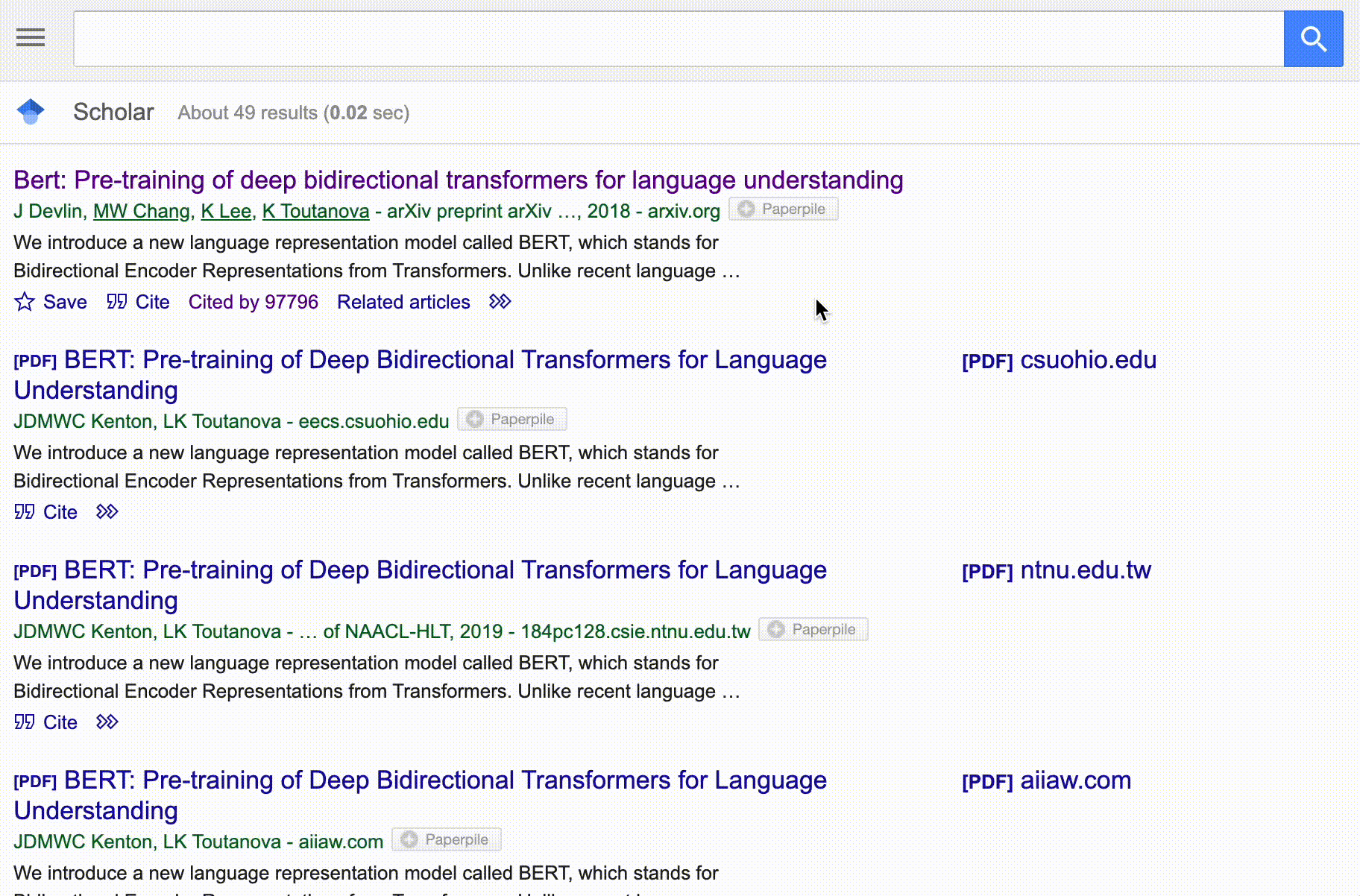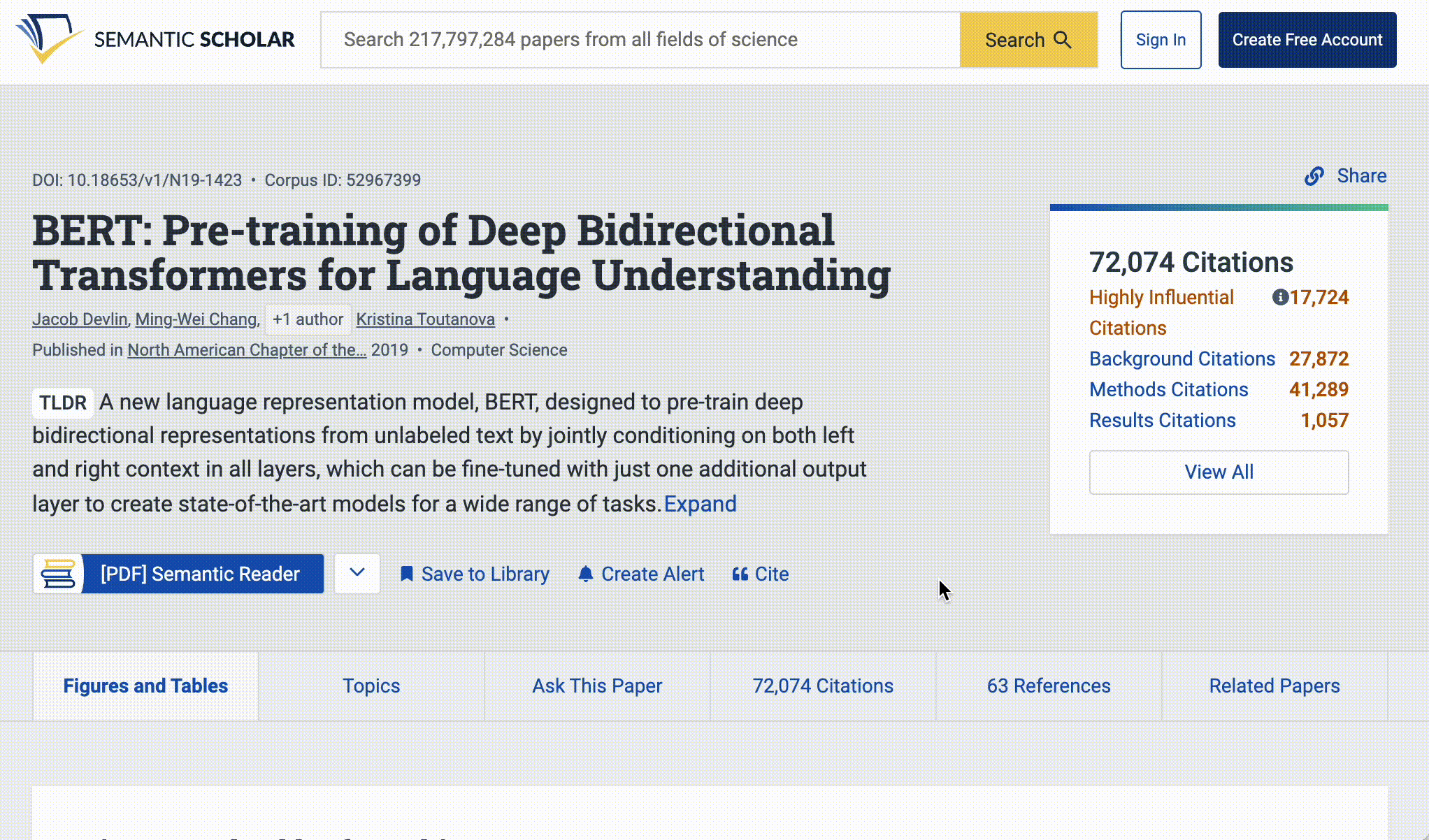Finding Papers for your Literature Review
This page enumerates some strategies for finding papers to add to your literature review.
An initial search
You have to start somewhere! Some good places to start your search are ACL Anthology, Google Scholar, and Semantic Scholar. ACL Anthology is NLP-specific and generally you can expect what you find there to be peer-reviewed and high quality. Google Scholar and Semantic Scholar aggregate papers from various publishers, including papers on arXiv, many of which are not peer-reviewed. I recommend using these sites to expand the breadth of your search, but you should be a little bit more cautious as you read papers that have not been peer-reviewed.
Imagine you are creating a NLI model with BERT. Your searches may include a number of keywords that relate to different components of the system:
- Terms related to the task: “NLI”, “natural langauge inference”, “RTE”, “recognizing textual entailment”
- Specific searches for data: “NLI datasets”
- Background: “BERT”, “text classification”
- Ethical considerations: “NLI ethics”, “NLI bias”
If you are using a search engine that does not only retrieve NLP papers, you might need to add keywords like “NLP”, “language”, etc. to your query if the search keywords you use have different meanings in different fields!
Getting access to papers
When searching for papers, you will find links to various publisher’s sites. Some are easy to access, and some are sadly not. All papers on the ACL anthology are freely available,1 and many authors also post papers on arXiv for free. AAAI sponsored conference proceedings are also freely available, along with NeurIPS proceedings. You might also find relevant papers published by ACM or IEEE. These are a mixed bag - some papers are freely available while others are not. If they aren’t freely available, refer to the instructions below for ILL. As long as you are on Middlbury wifi, I believe you should be able to seamlessly access papers from Elsevier and Springer.
Interlibrary Loan
If you want to read a paper that isn’t available, you should request it through Middlebury’s interlibrary loan system. It may take a little bit of time to get access this way, so don’t want until the last minute to do it!
Looking at citations
You can think of citations as directed edges in a very large graph, in which each paper is a node. Almost all papers cite other papers, and many papers have been cited as well! Those citations can help you to find relevant work.
Finding works that are cited in a paper
When you are reading a paper, it is really easy to find works that are cited by that paper! There should be in-text citations, plus a references section at the end. By simply searching for the papers that are cited that seem relevant, you will be well on your way to finding more work for your literature review.
Finding works that cite a paper
This direction is a little bit harder, because papers don’t list the other papers that cite them! However, this is really useful to see how future work has built on a paper you are reading! ACL anthology doesn’t keep track of citations, but Google Scholar and Semantic Scholar both have tools to look at which papers cite a paper of interest.
Google Scholar
Google Scholar has a really simple interface that allows you to see a list of papers that cite a paper.

Semantic Scholar
Semantic Scholar can do what Google Scholar does, and more! Using NLP, it splits the citations into a variety of categories: highly influential citations, background citations, methods citations, and results citations. These labels might be helpful to narrow down which citations of a highly cited paper you’d like to look at.

The reading process
Remember our How to Read a Paper reading from the beginning of the semester!
- Start with a first pass just to see if the paper is actually relevant. You might decide it’s irrelevant even after just reading the abstract, and that’s fine - go find another paper!
- I would suggest a modified second pass if you decide that the paper is relevant. In some cases, you will want to read the whole paper, but in other cases, you’ll find that only the data or the methods are relevant and it is fine to focus on those sections.
- The third pass should be reserved for very closely related papers that you might want to build on directly.
You will probably want to take notes as you are reading your paper, which can be converted into your final literature review.2 You might want to look back at the questions you answered for your supplemental reading responses, and think about them as you read.